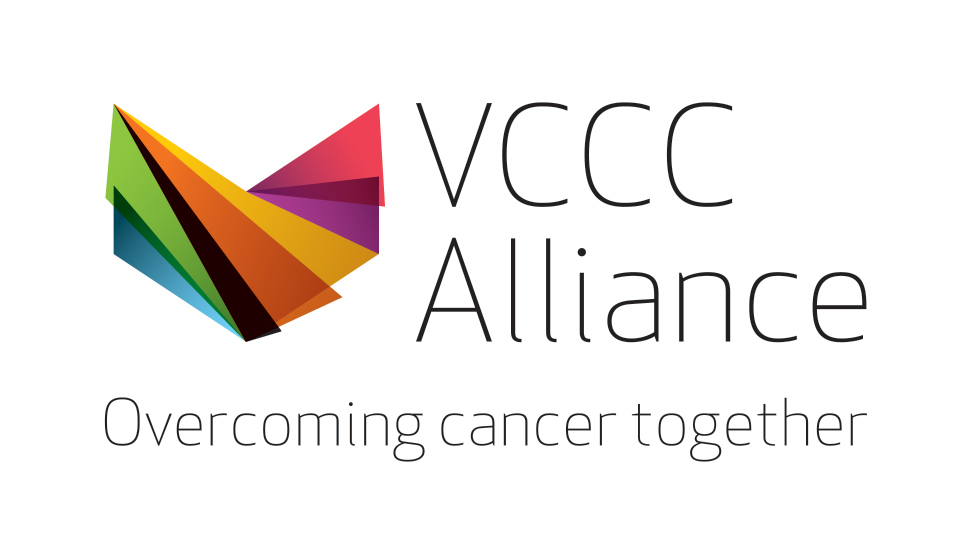Breast Cancer Grand Round with A/Prof Heather Thorne
Multi-centre, collaborative research in familial breast cancer
9 July 2025
Bringing together, integrating and managing the major clinical and research activities in familial breast cancer in Australia, the Kathleen Cuningham Foundation Consortium for Research into Familial Aspects of Breast Cancer (kConFab) has achieved international recognition as a model for multi-centre, population-wide, collaborative research. A/Prof Heather Thorne OAM will discuss its impact.
Chair
Associate Professor Simon Tsao
Breast & Endocrine Surgeon and Researcher
A/Prof Tsao is currently positioned at leading Melbourne hospitals, specialising in Breast and Endocrine Surgery. He holds a PhD for his research in cancer detection and is a leader in the field of using liquid biopsy to understand cancer progression and response to treatment.
Warning: The VCCC Alliance Breast Cancer Grand Round is targeted at a clinical audience and features open discussion about real cases and patients. While these cases are de-identified, the imagery, content and discussion can be graphic. It is not appropriate for consumer participants.
Visit Breast Cancer Education Hub to view the resource and many more!
Speaker
A/Prof Heather Thorne OAM
kConFab National Manager
With a background in laboratory research in the molecular genetics of breast cancer at Peter MacCallum Cancer Centre, Heather was appointed in 1997 as the first national manager of kConFab. kConFab is a consortium of approximately 300 geneticists, clinicians, surgeons, genetic counsellors, psychosocial researchers, pathologists and epidemiologists from Australia and New Zealand who believe the causes and consequences of familial predisposition to breast cancer can be understood only by a concerted basic and clinical research effort. Under her management in both the centralised laboratory and administrative office, kConFab has played a major role in organising many different aspects of familial breast, ovarian and prostate cancer research in Australia and contributing this biospecimen and data resource to national researchers and major international consortia.
She has managed all aspects of the kConFab resource since its inception in 1997, that includes daily and weekly interaction with health professions and researchers with active kConFab projects. Her co-ordination and delivery of biospecimen and data has enabled 213 approved projects which has resulted in 480 high ranking kConFab publications, h-index 65, which covers the broad spectrum for the development of cancer prevention strategies and the identification of risk factors, cancer gene discovery and novel treatments for high-risk cancer families. She has a particularly interested in expanding upon a biobanks/cohort translational role by supplying directly to participants, their families and their treating clinicians in the National Family Cancer Clinics clinically significant BRCA1/2, p53, PALB2 and ATM mutation test results to assist in recruiting eligible participants to new targeted therapies based on their gene profile for either germline or somatic mutations.
The Kathleen Cuningham Foundation Consortium for Research into Familial Aspects of Breast Cancer (kConFab)
The Kathleen Cuningham Foundation Consortium for Research into Familial Aspects of Breast Cancer (kConFab) brings together geneticists, clinicians, community representatives, surgeons, genetic counsellors, psychosocial researchers, pathologists and epidemiologists from all over Australia and New Zealand who believe the causes and consequences of familial predisposition to breast cancer can be understood only by a concerted national effort at both the basic and clinical level.
In 1997, kConFab, with the help of the Family Cancer centres in Australia and New Zealand began enrolling families with a strong history of breast and breast/ovarian cancer. Genetic, epidemiological, medical and psychosocial data collected from these families by kConFab are stored in a de-identified fashion in a central relational database. Biospecimens collected from family members are used to characterise germ-line mutations in predisposing genes such as BRCA1, BRCA2, ATM, PALB2, p53, PTEN. kConFab has accumulated data on more than 1,900 multigenerational, multi-case kindreds.
kConFab itself is not a research organisation in the usual sense, but rather provides a resource upon which researchers can draw. The aims of the consortium are to make data and biospecimens widely available to researchers for use in peer-reviewed, ethically-approved funded research projects on familial aspects of breast cancer. At present, kConFab is supplying biological specimens and data to more than 180 research projects worldwide.
kConFab has played a key enabling role in:
- Uniting geographically and academically diverse clinicians into a body that has developed best practice protocols for collection of data and biospecimens (blood and tissue) for research into familial breast cancer, providing Family Cancer Clinics with evidence-based guidelines for many of their clinical activities
- Working across state boundaries for family’s resident in more than one state for uniform research and clinical care, the conduct of multi-centre, translational research in areas of genetic epidemiology and the psychosocial aspects of familial cancer care to promoting a virtuous cycle of research-clinical care-research that has resulted in better co-ordinated clinical care of women with familial breast cancer and their families, informed by the latest research results,
- Integrating community involvement with familial breast cancer research and provided an “early warning” of new findings that are communicated to the national kConFab membership to help translate these findings to the clinic.
One of the original aims of kConFab has been the focus to improve health and well-being in high-risk cancer families regardless of where they live. kConFab has been uniquely positioned to support research into new gene variant discovery for improved surveillance, early cancer detection, and personalised treatment.
Recent membership to the established The National Cancer Cohort Platform (NCCP) will provide a centralised and streamlined data access opportunity to ensure precious biospecimens and clinical data is used to its full potential by researchers nationally.
Resource details

This course is brought to you by
